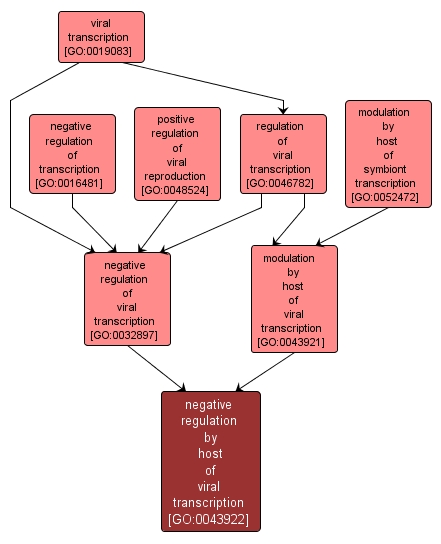GO TERM SUMMARY
|
| Name: |
negative regulation by host of viral transcription |
| Acc: |
GO:0043922 |
| Aspect: |
Biological Process |
| Desc: |
Any process by which a host organism stops, prevents or reduces the frequency, rate or extent of viral transcription, the synthesis of either RNA on a template of DNA or DNA on a template of RNA. |
Synonyms:
- negative regulation of viral transcription by host
|
|

|
INTERACTIVE GO GRAPH
|














